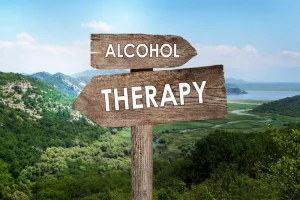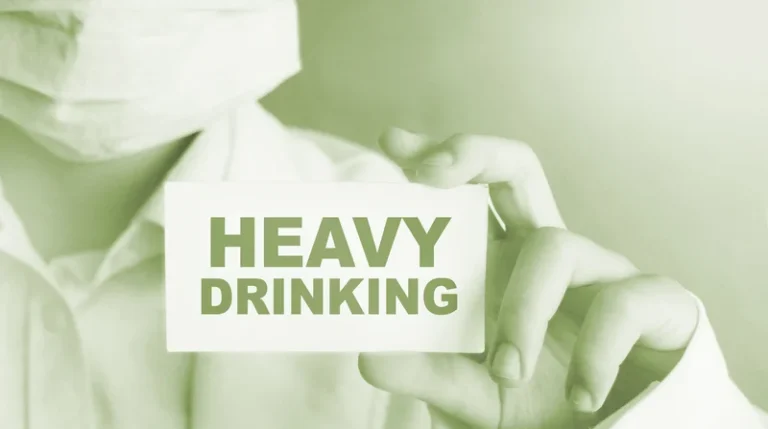Alcohol and depression HSE ie

Additionally, developing new, positive coping strategies is vital. This might involve activities such as mindfulness practices, physical exercise, or engaging in fulfilling hobbies. The primary issue with this coping strategy is that it avoids addressing the root causes of depression. Instead of dealing with the underlying emotional pain, challenges, or trauma, alcohol use only masks these issues, delaying necessary psychological processing and healing.
Changing your drinking

Many people turn to drinking to self-medicate and help manage symptoms of depression, not realizing that this coping mechanism can worsen depression. This is because alcohol alters the levels of brain chemicals (neurotransmitters) that impact our feelings and behavior. Two of the neurotransmitters involved in https://ecosoberhouse.com/ both alcohol use and depression are dopamine and serotonin.

Online therapy options
In addiction treatment, this term highlights how mental health and substance abuse can fuel each other. For example, using alcohol to cope with depression may worsen mental health, creating a destructive cycle. For women, these does alcohol make depression worse effects can be more pronounced due to differences in body composition and hormone levels, which may affect how alcohol is metabolized and its impact on the brain. The increase in anxiety can worsen depressive symptoms, creating a cycle where alcohol is continually used to mitigate anxiety, only to lead to greater levels of anxiety and depression over time. According to the National Institute on Alcohol Abuse and Alcoholism, among those with alcohol dependence, nearly 37 percent met the criteria for an anxiety disorder in the past year and nearly 28 percent— for major depressive disorder.
Alcohol abuse example
- If you or a woman close to you is struggling with depression, alcohol abuse, or a co-occurring disorder, we can help you.
- Chronic alcohol consumption also has significant negative effects on physical health, including the development of liver disease, heart disease, and high blood pressure.
- Depressive disorders are the most common psychiatric disorders among people with AUD, with an estimated 10% to 15% of people being affected by a major depressive disorder in their lifetimes.
- This article covers everything you need to know about the connection between alcohol and depression.
- Feelings of guilt, shame, and isolation often follow, eroding the social support that is essential for recovery.
Alcohol consumption increases the release of dopamine, leading to temporary feelings of pleasure and euphoria. However, with prolonged use, the brain starts compensating for these artificially elevated dopamine levels, reducing its natural production and response to the neurotransmitter. Alcohol’s impact on brain chemistry is profound and multifaceted. Primarily, it alters the levels of neurotransmitters, which are chemicals that transmit signals in the brain and affect mood and behavior.

Similar results have been generated from some, but not all, studies of alcoholism in relatives of patients with severe anxiety disorders. Nor did a review of several recent studies by Fyer and colleagues1 and Noyes and colleagues1 reveal high rates of alcoholism in relatives of people with social phobia or other anxiety disorders (Schuckit and Hesselbrock 1994). It is, therefore, not surprising that more than one out of every three alcoholics has experienced episodes of intense depression and/or severe anxiety (Cox et al. 1990; Wilson 1988). These psychological conditions are often intense enough to interfere with life functioning, and the symptoms are often recognized by physicians and other health care providers as serious enough to require treatment. When depressed or anxious alcohol-dependent people are asked their opinions about cause and effect, they often reply that they believe they drink in order to cope with their symptoms of sadness amphetamine addiction treatment or nervousness.
- Get you or your loved one help for addiction or mental health issues today.
- Thus, few of the investigations offered assurance that an alcoholic or alcoholic’s relative actually had a long-term psychiatric syndrome rather than a temporary alcohol-induced condition.
- Recognizing the symptoms of depression and alcohol use disorder can help ensure that you get the right diagnosis and treatment.
- Drinking makes depression worse because you are less likely to feed yourself the nutritious foods your body requires.
- She has covered global healthcare issues, including outbreaks of the Ebola and Zika viruses, anti-vaccination movements, and chronic diseases like obesity and Alzheimer’s.
If your loved one is struggling with both depression and alcohol, it can feel overwhelming. To overcome these patterns, a person must be ready to change of their own accord. But if you think they will be receptive, approach the problem with empathy and nonjudgement, and be prepared to offer solutions.


